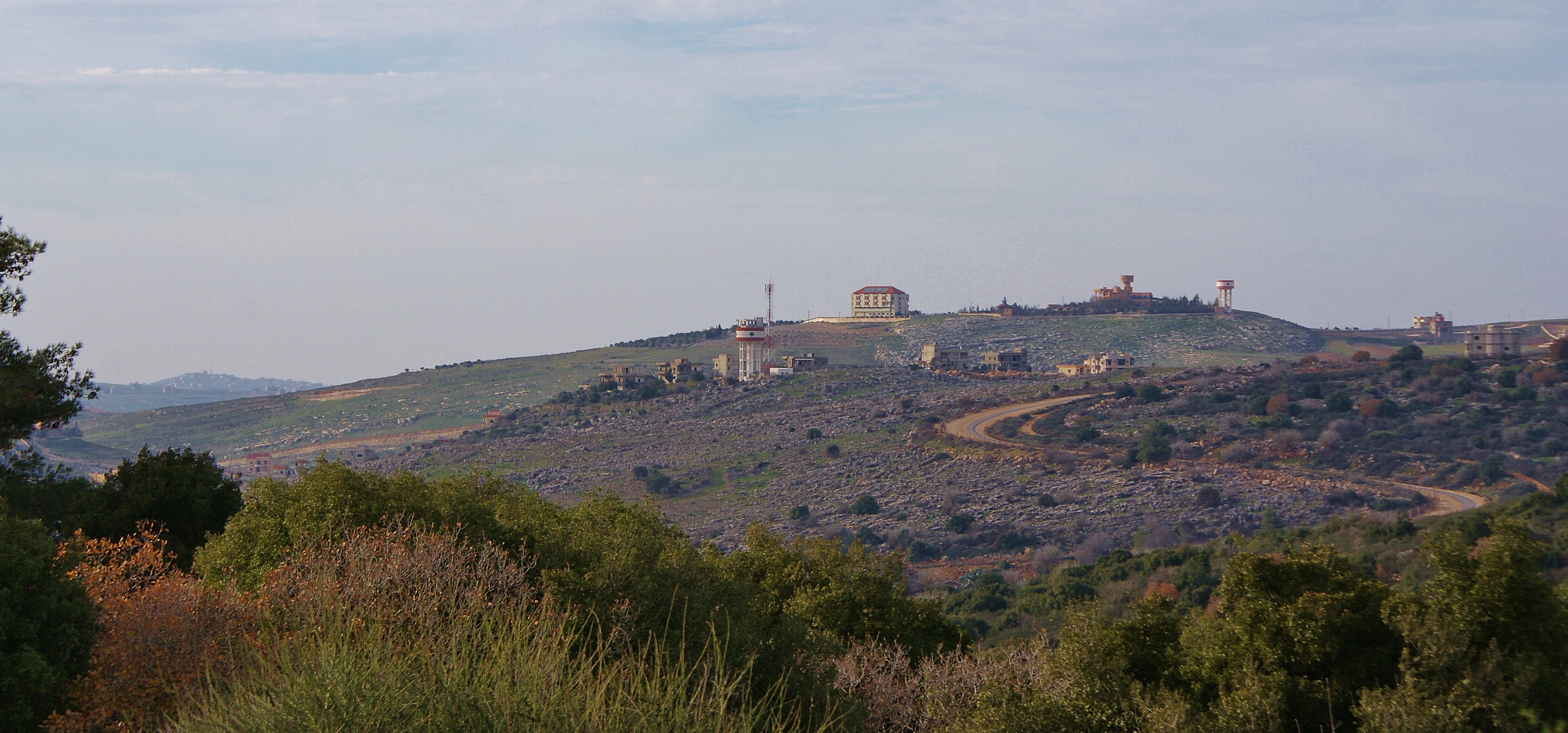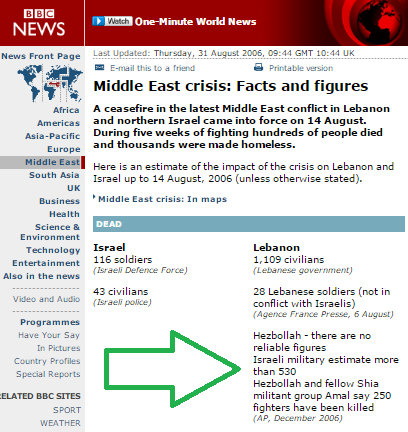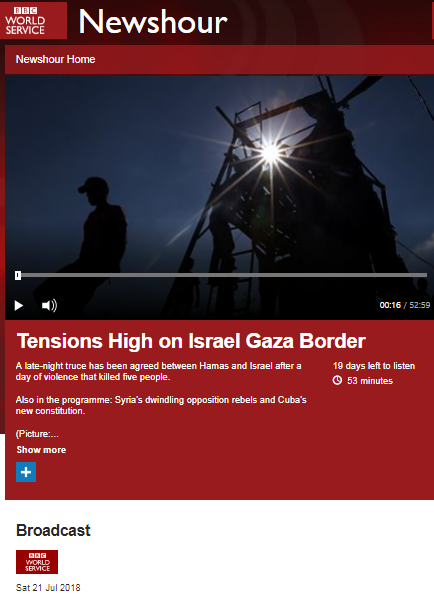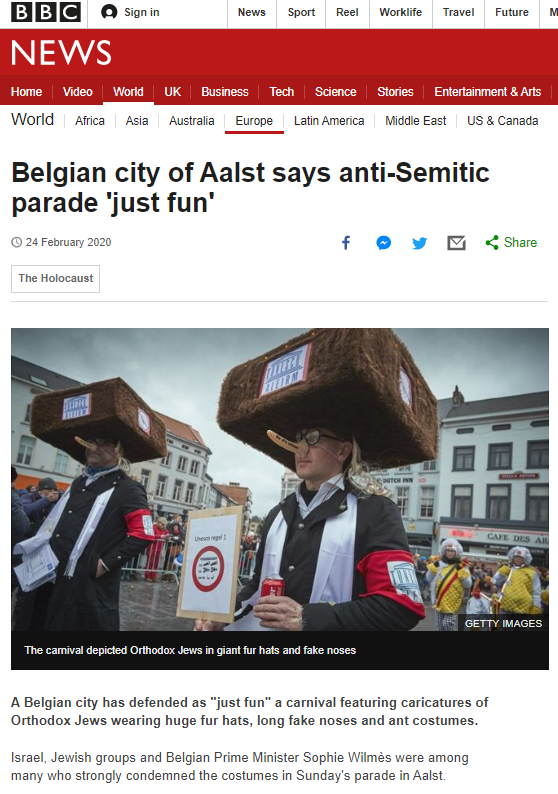As was noted in part two of this post, some of the themes found in BBC coverage of the Second Lebanon War a decade ago were also evident eight years later in the corporation’s reporting of a different summer war: the 2014 conflict between Israel and Hamas and other assorted terrorist groups in the Gaza Strip.
One of those themes was the presentation of civilian/combatant casualty ratios based on information which was not independently verified by the BBC and as regular readers know, that was a serious issue in the corporation’s reporting of the 2014 conflict between Israel and Hamas – and remains so.
“Now on this day last year another war erupted in Gaza. It lasted 51 days and turned into the longest, most costly conflict of the three wars in the past six years. More than 2,100 people were killed in Gaza and 72 were killed on the Israeli side including 66 soldiers. And a very high price paid by civilians – and most of all children – became a defining issue in this confrontation.” (Rebecca Kesby, ‘BBC World Update: Daily Commute’, BBC World Service, 8/7/2015) [emphasis added]
An internet search for information from the BBC concerning casualty figures during the Second Lebanon War produces remarkably uniform results. The BBC’s profile of Hizballah (like additional articles relating to the terrorist group) states that:
“More than 1,125 Lebanese, most of them civilians, died during the 34-day conflict, as well as 119 Israeli soldiers and 45 civilians.”
An article from 2010 informs audiences that:
“More than 1,000 Lebanese, mostly civilians, and about 160 Israelis, mostly soldiers, died in the conflict. […] More than 1,000 Lebanese, many civilians, died in the war as well as 116 Israeli soldiers and 43 civilians. In Lebanon, bridges, roads and thousands of homes were destroyed in the Israeli bombardment.”
An article from 2009 tells readers that:
“What it [Hizballah] got was a 34-day onslaught from the Israeli military, costing more than 1,000 lives, mostly Lebanese civilians.
About 160 Israelis were killed, mostly soldiers, in fighting and rocket fire from Hezbollah.”
Another report from the same year states:
“On the Lebanese side more than 1,000 people died, mostly civilians. About 160 Israelis – most of them soldiers – died in the fighting and rocket fire.”
An article from 2007 states:
“About 1,200 Lebanese, mostly civilians, and 160 Israelis, mostly soldiers, were killed in the conflict.”
Another report from 2007 tells readers that:
“Most of the 159 Israelis killed were soldiers. More than 1,000 Lebanese, most of them civilians, also died in the 34-day war.”
In a report from November 2006, audiences were told that:
“The war killed more than 1,200 Lebanese, mostly civilians, and 157 Israelis, mostly soldiers.”
As can be seen, the BBC’s portrayal of the subject of Lebanese casualties is glaringly and consistently devoid of any mention of Hizballah combatants – despite the fact that at the end of August 2006, the corporation did acknowledge that some of the dead were combatants from that group and others.

Like Hamas in 2014, the Lebanese authorities did not differentiate between civilians and combatants during the 2006 war but nevertheless, Lebanese officials reported even before the conflict was over that some 500 of the dead were Hizballah personnel and UN officials gave similar figures while Israeli estimates stand at around 600 (with 450 identified by name: see page 55 here).
As we see above, the media organisation supposedly committed to rigorous standards of accuracy has however continued over the years to portray Lebanese casualties during the 2006 war as “mostly civilians” despite there being no evidence of its having been able to independently verify that claim.
The same is true of the BBC’s portrayal of casualties during the summer 2014 conflict between Israel and Hamas which is presented along the following lines:
“The war left more than 2,100 Palestinians dead, the majority civilians, according to the UN.”
In both these conflicts and in others, the BBC adopted and promoted the narrative that non-Israeli casualties were ‘mostly civilians’ despite the lack of independent verification. Moreover, the BBC makes no effort to provide its audiences with information which would enable them to compare civilian/combatant casualty ratios in conflicts in which Israel is involved with those seen in other conflicts.
The result is of course clear: BBC audiences have over the last decade at least been repeatedly steered towards the erroneous view that wars in which Israel is involved result in exceptionally high numbers of civilian deaths on the other side.
Related Articles:
BBC continues to avoid independent verification of Gaza casualty ratios
BBC promotion of the inaccurate notion of exceptional civilian casualties in Gaza
A retrospective look at BBC coverage of the Second Lebanon War – part one
A retrospective look at BBC coverage of the Second Lebanon War – part two




